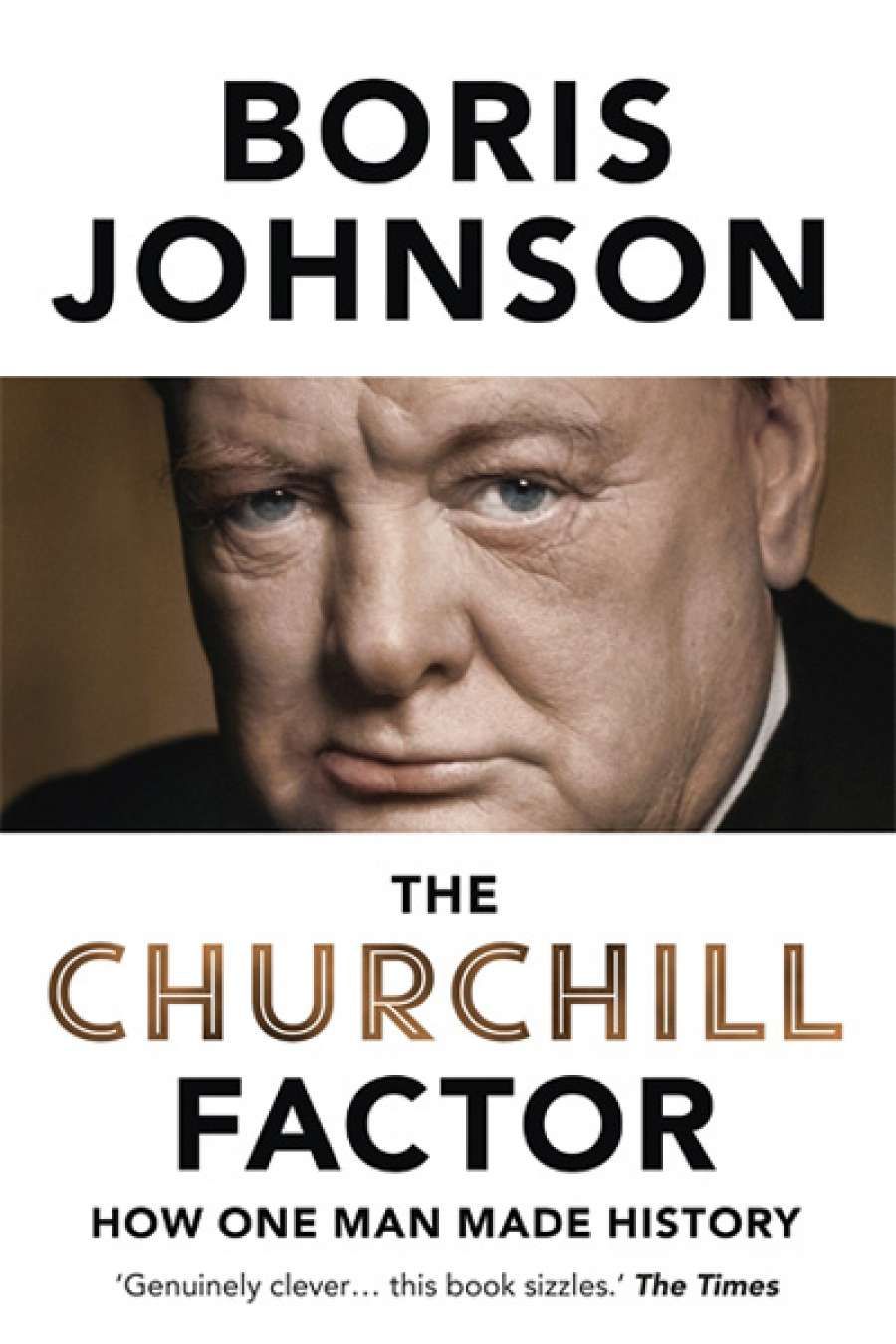
- Free Article: No
- Contents Category: Biography
- Custom Article Title: Peter Heerey reviews 'The Churchill Factor' by Boris Johnson
- Review Article: Yes
- Online Only: No
- Book 1 Title: The Churchill Factor
- Book 1 Subtitle: How One Man Made History
- Book 1 Biblio: Hodder & Stoughton, $32.99 pb, 408 pp, 9781444783032
Of course, along the way Churchill made some colossal mistakes. Upper-most in the minds of Australians is the Dardenelles disaster, which led to Churchill's removal from the Cabinet. Another event with lingering consequences was his order to destroy the French fleet at Mers-el-Kébir in July 1940, with the death of more than 1,200 French sailors. Johnson argues valiantly for the defence case, but it is pretty clear there were peaceful alternatives.
On a lesser scale, but eloquent as to the self-centredness at times of his personality, was Churchill's demand to be personally present on a warship at the D-Day landings. It took two handwritten letters from George VI to dissuade him from this course. And he had a particular blind spot where Indian independence was concerned. This was a stand which forced him to the back bench in the 1930s. He said some awful things about Gandhi ('half-naked fakir', etc.). But in that context there is an anecdote which shows how hard it is to really dislike Churchill. During a wartime lunch at the White House, Franklin Roosevelt mischievously seated him next to a Mrs Ogden Reid, a publisher and fierce campaigner for Indian independence. The following exchange took place:
Mrs OR: What are you going to do about those wretched Indians?
WSC: Are we talking about the brown Indians in India, who have multiplied alarmingly under the benevolent British rule? Or are we speaking of the red Indians in America who, I understand, are almost extinct?
'He argues that ... Churchill can fairly be described as a co-founder of the welfare state'
But let us suppose a counter-factual. Someone spends seventy years engaged in furious public activity, including times when his country is in existential peril. Many social attitudes are vastly different from today. He makes thousands of life and death decisions, yet they all turn out brilliantly. Moreover, in countless public utterances he never says anything which would be out of place in an inner suburban café today. He is a lifelong vegetarian teetotaller, starting each day with an hour's rigorous yoga. The result would be a much less entertaining biography.
 Churchill during an air raid warning, 1940 (Library of Congress via Wikimedia Commons)
Churchill during an air raid warning, 1940 (Library of Congress via Wikimedia Commons)
Johnson's style is lively, to the point of breeziness, with the odd jarring note (some ideas are dismissed as 'bonkers'). Yet there is scholarship worn lightly. Bibliography and endnotes extend over thirty-four pages. Johnson's colourful public persona conceals a highly intelligent and educated core. The present reviewer is reminded of Johnson's The Dream of Rome (HarperCollins, 2006), which displays an erudite understanding of Roman history and Latin literature.
In the present work, Johnson provides an enlightening analysis of the sophisticated rhetorical construction of some of Churchill's famous speeches. Taking the passage in his speech on the Battle of Britain, 'Never in the field of human conflict has / so much been owed by / so many to / so few', Johnson points out that it is a classic descending tricolon with anaphora, or repetition of key words; each leg, or colon, is shorter than the last.
The present reviewer is proud to recall seeing the great man on the back benches of the House of Commons in 1961.


Comments powered by CComment